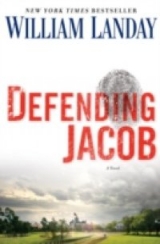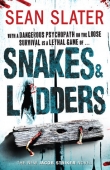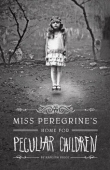
Текст книги "Defending Jacob"
Автор книги: William Landay
Соавторы: William Landay
Жанр:
Криминальные детективы
сообщить о нарушении
Текущая страница: 4 (всего у книги 25 страниц)
5
Everyone Knows You Did It
T he student interviews began right after school. For the kids, it had been a long day filled with class meetings and grief counseling. CPAC detectives in plain clothes had gone from classroom to classroom encouraging kids to share tips with the investigators, anonymously if necessary. The kids stared back dully.
The McCormick was a middle school, which in this town meant it covered grades six through eight. The building was an arrangement of plain rectangular boxes. Inside, the walls were painted thick with many layers of teal. Laurie grew up in Newton and went to the McCormick in the 1970s; she said the school had hardly changed except for the illusion, as she walked down the halls, that the whole structure had shrunk.
As I had told Canavan, these interviews were a contentious subject. At first, the school principal flatly refused to allow us to “storm in” and talk to any kid we pleased. Had the crime happened in another place-in the urb rather than the suburb-we would not have bothered to ask permission. Here, the school board and even the mayor intervened directly with Lynn Canavan to slow us down. In the end, we were allowed to talk to the kids on school grounds but only on certain conditions. Kids who were not in Ben Rifkin’s homeroom were off limits unless we had a specific reason to believe they might know something. Any student could have a parent and/or a lawyer present and could end the interview at any time, for any reason or no reason. Most of this was easy to concede. They were entitled to a lot of it anyway. The real point of stipulating so many rules was to send the cops a message: treat these kids with kid gloves. Which was fine, but precious time was lost while we diddled around negotiating.
At two o’clock, Paul and I commandeered the principal’s office and together we interviewed the highest-priority witnesses: the victim’s close friends, a few kids who were known to walk to school through Cold Spring Park, and those who specifically requested to speak with the investigators. Two dozen interviews were scheduled for the two of us. Other CPAC detectives would conduct interviews at the same time. Most we expected to be brief and yield nothing. We were trawling, dragging our net along the sea bottom, hoping.
But something odd happened. After just three or four interviews, Paul and I had the distinct impression we were being stonewalled. At first we thought we were seeing the usual repertoire of adolescent tics and evasions, the shrugs and y’knows and whatevers, the wandering eyes. We were both fathers. We knew that walling out adults was what all teenagers did; it was the whole point of these behaviors. In itself, there was nothing suspicious about it. But as the interviews went on, we realized something more brazen and purposeful was going on. The kids’ answers went too far. They were not content to say they knew nothing about the murder; they denied even knowing the victim. Ben Rifkin seemed to have had no friends at all, only acquaintances. Other kids never spoke to him, had no idea who did. These were transparent lies. Ben had not been unpopular. We already knew who most of Ben’s friends were. It was a betrayal, I thought, for his buddies to disown him so quickly and completely.
Worse, the eighth-graders at the McCormick were not especially competent liars. Some of them, the more shameless ones, seemed to believe that the way to pass off a lie convincingly was to oversell it. So, when they got ready to tell a particularly tall one, they would stop all the foot-shuffling and y’knows, and deliver the lie with maximum conviction. It was as if they had read a manual on behaviors associated with honesty-eye contact! firm voice! – and were determined to display them all at once, like peacocks fanning their tail feathers. The effect was to reverse the behavior patterns you might expect to see in adults-the teens seemed evasive when honest and direct when lying-but their shifting manner set off alarm bells just the same. The other kids, the majority, were too self-conscious to begin with and lying only made them more so. They were tentative. The truth inside them made them squirm. This obviously did not work either. I could have told them, of course, that a virtuoso liar slips the false statement in among the true ones without a flutter of any kind, like a magician slipping the bent card into the middle of the deck. I have had an education in virtuosic lying, believe me.
Paul and I began to exchange suspicious glances. The pace of the interviews slowed as we challenged some of the more obvious lies. Between interviews, Paul joked about a code of silence. “These kids are like Sicilians,” he said. Neither of us said what we were truly thinking. There is a plummeting feeling, as if the floor has fallen away beneath you. It is the happy vertigo you feel when a case opens up and lets you in.
Apparently we had been wrong-there was no other way to say it. We had considered the possibility that a fellow student was involved, but we had discounted it. There was no evidence pointing that way. No sullen outcasts among the students, no sloppy schoolboy trail of evidence to follow. Nor was there an apparent motive: no grandiose adolescent fantasies of outlaw glory, no damaged, bullied kids out for revenge, no petty classroom feud. Nothing. Now, neither of us had to say it. That vertiginous feeling was the thought: these kids knew something.
A girl sloped into the office and dropped into the chair opposite us, then, with great effort, she refused to acknowledge us.
“Sarah Groehl?” Paul said.
“Yes.”
“I’m Lieutenant Detective Paul Duffy. I’m with the state police. This here is Andrew Barber. He’s the assistant district attorney in charge of this case.”
“I know.” She looked up at me finally. “You’re Jacob Barber’s dad.”
“Yes. You’re the sweatshirt girl. From this morning.”
She smiled shyly.
“Sorry, I should have remembered you. I’m having a tough day, Sarah.”
“Yeah, why’s that?”
“Nobody wants to talk to us. Now, why is that, you have any idea?”
“You’re cops.”
“That’s it?”
“Sure.” She made a face: Duh!
I waited a moment, hoping for more. The girl returned a look of exquisite boredom.
“Are you a friend of Jacob’s?”
She looked down, considered, shrugged. “I guess so.”
“How come I haven’t heard your name?”
“Ask Jacob.”
“He doesn’t tell me anything. I have to ask you.”
“We know each other. We’re not, like, friends, Jacob and me. We just know each other.”
“How about Ben Rifkin? Did you know him?”
“Same. I knew him but I didn’t really know him.”
“Did you like him?”
“He was okay.”
“Just okay?”
“He was a good kid, I guess. Like I said, we weren’t really close.”
“Okay. So I’ll stop asking stupid questions. Why don’t you just tell us, Sarah? Anything at all that might help us, anything you think we ought to know.”
She shifted in her seat. “I don’t really know what you-I don’t know what to tell you.”
“Well, tell me about this place, this school. Start with that. Tell me something about McCormick that I don’t know. What’s it like to go to school here? What’s funny about this place? What’s strange about it?”
No response.
“Sarah, we want to help, you know, but we need some of you kids to help us.”
She shifted around in her seat.
“You owe that much to Ben, don’t you think? If he was your friend?”
“I don’t know. I don’t have anything to say, I guess. I don’t know anything.”
“Sarah, whoever did this, he’s still out there. You know that, don’t you? If you can help, then you have a responsibility. A real responsibility. Otherwise this same thing is going to happen again to some other kid. Then it would be on you. If you didn’t do everything-absolutely everything you could-to make it stop, then the next one would be on you, wouldn’t it? How would that make you feel?”
“You’re trying to guilt me. It won’t work. My mom does that too.”
“I’m not trying to guilt you. I’m just telling you the truth.”
No response.
Bang! Duffy smacked the table with his open palm. Some papers drifted with the breeze he created. “Jesus! This is bullshit, Andy. Just put a subpoena on these kids already, would you? Put ’em in the grand jury, swear ’em in, and if they don’t want to say anything, just lock ’em up for contempt. This is a waste of time. For Christ’s sake!”
The girl’s eyes dilated.
Duffy took his cell phone from a holster on his belt and looked at it, though it had not rung. “I have to make a call,” he announced. “I’ll be right back,” and out he marched.
The kid said, “Is he supposed to be the bad cop?”
“Yeah.”
“He’s not very good at it.”
“You jumped. I saw you.”
“Only ’cause he startled me. He banged the table.”
“He’s right, you know. If you kids don’t start helping us out, we’ll have to do this another way.”
“I thought we didn’t have to say anything if we didn’t want to.”
“That’s true today. Tomorrow, maybe not.”
She thought it over.
“Sarah, it’s true, what you said before. I’m a DA. But I’m also a dad, okay? So I’m not going to just let this thing go. Because I keep thinking of Ben Rifkin’s dad. I keep thinking of how he must be feeling. Can you even imagine how your mom or dad would feel if this happened to you? How devastated they’d be?”
“They’re split up. My dad’s out of the picture. I live with my mom.”
“Oh. I’m sorry to hear that.”
“It’s no big deal.”
“Well, Sarah, look, you’re all our kids, you know. All you kids in Jacob’s class, even the ones I don’t know, I care about. All of us parents feel that way.”
She rolled her eyes.
“You don’t believe that?”
“No. You don’t even know me.”
“That’s true. Still, I care what happens to you just the same. I care about this school, this town. I’m not going to just let this happen. This isn’t going away. You understand that?”
“Is anyone talking to Jacob?”
“You mean my son Jacob?”
“Yeah.”
“Of course.”
“Okay.”
“Why do you say that?”
“No reason.”
“There must be a reason. What is it, Sarah?”
The girl studied her lap. “The cop who came to our class said we could tell you things anonymously?”
“That’s right. There’s a tip line.”
“How do we know you won’t try to, like, figure out who gave a tip? I mean, that’s something you’d want to know, right? Who said something?”
“Sarah, come on. What is it you want to say?”
“How do we know it will stay anonymous?”
“You just have to trust us, I guess.”
“Trust who? You?”
“Me. Detective Duffy. There’s a lot of people working on this case.”
“What if I just…” She looked up.
“Look, I’m not going to lie to you, Sarah. If you tell me something here, it’s not anonymous. My job is to catch the guy who did this, but it’s also to try him in court and for that I’ll need witnesses. I’d be lying if I told you any different. I’m trying to be honest with you here.”
“Okay.” She considered. “I really don’t know anything.”
“You sure about that?”
“Yes.”
I looked her in the eye just a moment to let her know I wasn’t fooled, then I accepted her lie. I pulled a business card from my wallet. “This is my card. I’m going to write my cell phone number on the back. My personal email too.” I slid the card across the desk. “You can contact me anytime, okay? Anytime. And I’ll do what I can to look out for you.”
“Okay.”
She took the card and stood up. She looked down at her hands, at her fingers. Her fingertips were stained with black ink, imperfectly wiped off. All the students at the school were being fingerprinted that day, “voluntarily,” though there were jokes about the implications of refusing. Sarah frowned at the ink stains, then crossed her arms to hide them and in that awkward posture she said, “Hey, can I ask you something, Mr. Barber? Are you ever the bad cop?”
“No, never.”
“Why not?”
“It’s just not me, I guess.”
“So how do you do your job, then?”
“I have a mean streak, deep down. Trust me.”
“You just hide it?”
“I just hide it.”
That night, a little before eleven, I was alone in the kitchen, using my laptop computer which I had set up on the kitchen counter. I was cleaning up some odd bits of work, answering emails mostly. A new message arrived in my inbox. The subject line read-shouted-“RE: BEN RIFKIN››› README.” It was from a Gmail address, tylerdurden982@gmail. com. The time stamp read 10:54:27 PM. The message contained a single line, a hyperlink: “ Look here.” I clicked the link.
The link took me to a Facebook group called “
Friends of Ben Rifkin.” The Facebook group was new. It could not have been established more than four days before; the day of the murder, CPAC had looked at Facebook and it was not there.
We had found the dead boy’s personal Facebook page (almost every kid at the McCormick was on Facebook), but Ben’s page contained no hints about the murder. For what it was worth, in his profile he had been keen to present himself as a free spirit.
Ben Rifkin
is out boarding
Networks:
McCormick Middle School ’07
Newton, MA
Sex:
Male
Interested in:
Women
Relationship Status:
Single
Birthday:
December 3, 1992
Political Views:
Vulcan
Religious Views:
Heathen
The rest was the usual clutter of digital junk: YouTube videos, games, pictures, a stream of vapid, gossipy messages. Relatively speaking, though, Ben had not been an especially heavy user of Facebook. Much of the activity on his page happened after he was murdered, when messages from Ben’s classmates continued to accumulate in a ghostly way until the page was removed at his parents’ request.
The new “tribute” page apparently was opened in response, to give kids a place to go on posting messages about the murder. The title, “
Friends of Ben Rifkin,” seemed to use friends in the Facebook sense: it was open to anyone in the McCormick class of 2007, whether or not they had actually been Ben’s friend.
At the top of the page was a small photo of Ben, the same one he had used on his personal page. Presumably it had been cut-and-pasted from the dead boy’s old page by whoever launched this group. The picture showed Ben smiling, shirtless, apparently on a beach (the sand and ocean were visible behind him). He was making a “hang loose” gesture with his right hand. Down the right side of the page there was a panel called the Wall, filled with messages in reverse chronological order. Jenna Linde (McCormick Middle School) wrote at 9:02pm on April 17th, 2007 I miss you ben. I remember our talks. i love you forever i love you I love you Christa Dufresne (McCormick Middle School) wrote at 8:43pm on April 17th, 2007 this is the cruelest thing whoever did this. I will never forget you Ben. I think about you every day.
It is important to note that in 2007 Facebook was still largely a kids’ paradise. Its explosive growth among adults happened in the following couple of years. That was the case in our circle, at least. Most of the parents at the McCormick School looked at Facebook now and then to monitor what their kids were up to, but that was about it. A few of our friends joined, but they rarely used it. There were not enough other parents there yet to make it worthwhile. Personally I had no idea what Jacob and his friends saw in Facebook. I could not grasp why all this information-churning was so compelling. The only explanation, it seemed to me, was that Facebook was where kids went to be away from adults, their secret place where they strutted and flirted and goofed around with the bravado they could never muster in person in the school cafeteria. Jacob, certainly, was much more clever and assertive online than in person, as many shy kids are. Laurie and I saw the danger in allowing Jacob to carry on like this in secret. We insisted he give us his password so we could check up on him, but honestly, Laurie was the only one who ever looked at Jacob’s Facebook page. To me, the kids’ online conversation was even less interesting than the offline version. If I ever looked at Facebook back then, it was because the face in question was in one of my case files. Was I a neglectful parent? In hindsight, obviously yes. But then we all were, all the parents at Jacob’s school. We did not know the stakes were so high.
There were already several hundred messages on the “
Friends of Ben Rifkin
” page. Emily Salzman (McCormick Middle School) wrote at 10:12pm on April 16th, 2007 I am still totally wigged. who did this? why did you do it? why? what was the point? what did u get out of it? this is just so sick Alex Kurzon (McCormick Middle School) wrote at 1:14pm on April 16th, 2007 at cold sprg pk now. yellow tape still up. nthng to see though. no cops.
The messages went on like this, unguarded, confessional. The Web created an illusion of intimacy, a byproduct of the kids’ dazed immersion in the “virtual” world. Alas, they were about to learn the Web belonged to grown-ups: I was already thinking of the subpoena duces tecum – the order to produce documents and records-that I would send to Facebook to preserve all these online conversations. In the meantime, avid as an eavesdropper, I went on reading. Dylan Feldman (McCormick Middle School) wrote at 9:07pm on April 15th, 2007 Jacob STFU. if you dont want to read it, go someplace else. you of all people. f*ck off. he considered you a friend. dickhead Mike Canin (McCormick Middle School) wrote at 9:01pm on April 15th, 2007 Have to call you out on that Jake. You’re not the FB police, esp the way things went down. you shd keep your head down amp; be quiet. John Marolla (McCormick Middle School) wrote at 8:51pm on April 15th, 2007 WTF? JB what are you mouthing off here for? go die. the world would be a better place. go f*ck off amp; die. Julie Kerschner (McCormick Middle School) wrote at 8:48pm on April 15th, 2007 Not cool, Jacob. Jacob Barber (McCormick Middle School) wrote at 7:30pm on April 15th, 2007 Maybe you all haven’t heard-Ben is dead. Why are we still writing him messages? And why are some people acting like his best friend when you never were? Can we just be real here?
I stopped at Jacob’s name-at the realization that these last venomous messages were aimed at my Jacob. I was not prepared for the reality of Jacob’s life, the complexity of his relationships, the trials he went through, the brutality of the world he inhabited. Go die. The world would be a better place. How could my son have been told such a thing and never shared it with his family? Never even let on? I was disappointed not in Jacob but in myself. How could I have left my son with the impression I did not care about such things? Or was I being a wimp, overreacting to the exaggerated, hopped-up tone of the Internet?
I also felt like a fool, honestly. I ought to have known about all this. Laurie and I had talked with Jacob only in the most general way about what he did on the Internet. We knew that when he went off to his room at night, he was able to go online. But we had some software installed on his computer to prevent him from looking at certain websites, porn sites mostly, and we felt that was enough. Facebook never seemed particularly dangerous, certainly. Also, neither of us wanted to spy on him. As a couple, we believed that you raise a child with good values and then you give him space, you trust him to behave responsibly, at least until he gives you reason not to. Modern, enlightened parents, we had not wanted to be Jake’s adversaries, quizzing him about every move, hectoring him. It was a philosophy shared by most of the McCormick parents. What choice did we have? No parent can monitor his kid’s every moment, online or off. In the end, every child leads his own life, largely out of his parents’ sight. Still, when I saw the words Go die, I realized how naive and stupid we had been. Jacob did not need our trust or our respect as much as he needed our protection, and that we had not given him.
I scrolled through the messages more quickly. There were hundreds, each just a line or two. I could not possibly read them all, and I had no idea what Sarah Groehl wanted me to find. Jacob disappeared from the conversation for a long stretch as the messages got older. The kids consoled one another in maudlin messages (we will never evr be the same) and hard-boiled ones (die young, stay pretty). Over and over they expressed their shock. The girls protested their love and loyalty, the boys their anger. I scoured these endless repetitive messages for some worthwhile detail: i cant believe this… we have to stick together… there are cops everywhere in school…
Finally, I clicked over to Jacob’s own Facebook page, where a hotter conversation was still simmering, this one from the immediate aftermath of the murder. Again, the messages were displayed in reverse chronological order. Marlie Kunitz (McCormick Middle School) wrote at 3:29pm on April 15th, 2007 D.Y.: Do NOT say things like that here. That is GOSSIP and it could get people HURT. Even if it’s a joke, it’s stupid. Jake, just ignore him. Joe O’Connor (McCormick Middle School) wrote at 3:16pm on April 15th, 2007 Everyone shd all just keep their mouths SHUT if we dont know what we’re talking abt. that means you derek, you tool. this is SERIOUS SHIT here. NFW you shd be talking out of your ass like that. Mark Spicer (McCormick Middle School) wrote at 3:07pm on April 15th, 2007 ANYbody could say ANYthing about ANYbody. maybe YOU have a knife derek? how does it feel when somebody starts a rumor about YOU?
Then this: Derek Yoo (McCormick Middle School) wrote at 2:25pm on April 15th, 2007 Jake, everyone knows you did it. You have a knife. I’ve seen it.
I could not move. Could not budge my eyes from the message. I stared at it until the letters broke down into pixels. Derek Yoo was a friend of Jacob’s, a good friend. He had been to our house a hundred times. The two boys had been in kindergarten together. Derek was a good kid.
I’ve seen it.
The next morning I let Laurie and Jacob both leave before me. I told them I had a meeting at the Newton police station and did not want to drive back and forth to Cambridge. When they were safely gone, I went up to Jacob’s room and searched.
The search did not take long. In the top drawer of the bureau, I found something hard, lazily hidden in an old white T-shirt. I unrolled the T-shirt until it spilled onto the bureau a folding knife with a black rubberized handle. I picked it up daintily, tweezed the blade between my thumb and index finger, and pulled it open.
“Oh my God,” I murmured.
It might have been a military knife or a hunting knife, but then it seemed too small for that. Unfolded, it was about ten inches long. The handle was black, grippy, shaped to accept four fingers. The blade was hook-shaped, with an intricately serrated cutting edge-a ripping blade-and it came to a lethal gothic point. The flat sides of the blade had been drilled out, presumably to save weight. The knife was sinister and beautiful, the shape of the blade, its curve and taper. It was like one of those lovely deadly things in nature, a lick of flame or the claw of an enormous cat.








